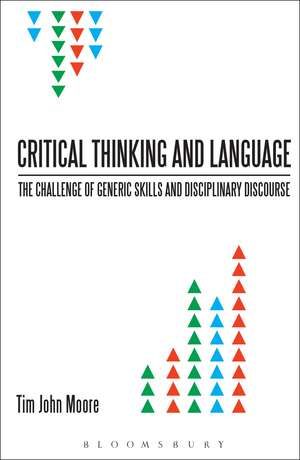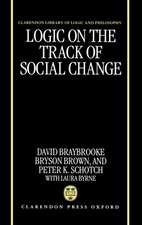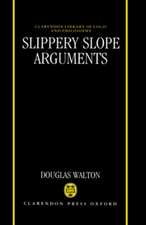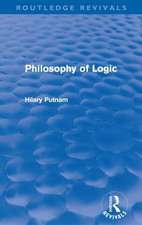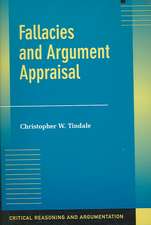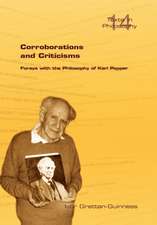Critical Thinking and Language: The Challenge of Generic Skills and Disciplinary Discourses
Autor Dr Tim John Mooreen Limba Engleză Hardback – 12 oct 2011
| Toate formatele și edițiile | Preț | Express |
|---|---|---|
| Paperback (1) | 257.59 lei 6-8 săpt. | |
| Bloomsbury Publishing – 27 mar 2013 | 257.59 lei 6-8 săpt. | |
| Hardback (1) | 1014.37 lei 6-8 săpt. | |
| Bloomsbury Publishing – 12 oct 2011 | 1014.37 lei 6-8 săpt. |
Preț: 1014.37 lei
Preț vechi: 1456.02 lei
-30% Nou
Puncte Express: 1522
Preț estimativ în valută:
194.13€ • 200.54$ • 161.56£
194.13€ • 200.54$ • 161.56£
Carte tipărită la comandă
Livrare economică 25 martie-08 aprilie
Preluare comenzi: 021 569.72.76
Specificații
ISBN-13: 9781441157508
ISBN-10: 1441157506
Pagini: 272
Dimensiuni: 156 x 234 x 33 mm
Greutate: 0.9 kg
Ediția:New.
Editura: Bloomsbury Publishing
Colecția Continuum
Locul publicării:London, United Kingdom
ISBN-10: 1441157506
Pagini: 272
Dimensiuni: 156 x 234 x 33 mm
Greutate: 0.9 kg
Ediția:New.
Editura: Bloomsbury Publishing
Colecția Continuum
Locul publicării:London, United Kingdom
Caracteristici
Ascertains exactly what 'critical thinking' is through a variety of viewpoints including the language faculty.
Notă biografică
Tim John Moore is a Senior Lecturer at the Swinburne University of Technology, Australia and an Adjunct Research Associate at Monash University, Australia
Cuprins
1. Introduction: The Problem of Critical Thinking 2. Critical Thinking: History, Definitions, Issues 3. In Search of Critical Thinking 4. The Ineffability of Critical Thinking 5. Critical Thinking: The Disciplinary Dimension 6. Critical Thinking: So What Is It? 7. Conclusions & Implications for Teaching Bibliography Index
Recenzii
Tim John Moore makes abundantly clear that his goal in writing Critical Thinking and Language was to facilitate better teaching of critical thinking at university level ... I applaud both Moore's intentions with the book, and also his overarching method ... I have not found a more concise yet in-depth handling of the topic ... [and] was won over ... by the depth and breath of the investigation, by Moore's adroit discourse analysis and interpretations ... and by the heuristic value of his insights and conclusions ... The study served a valuable purpose for me.
[A] well-written and thoughtful study ... University teachers and program administrators looking to foster critical thinking ... can find much food for thought in this contribution.
In this informative, well-researched and accessible book, Tim Moore traverses the critical thinking landscape to ascertain exactly what the term encompasses ... The strength of this book is that it does make you think.
The topic ... is a timely one as discussions reverberate around the world about possible dilutions of undergraduate academic standards as the pools of students entering tertiary education continue to increase. The topic also has considerable intrinsic interest since the precise nature of what is meant by "critical thinking" is both contested and variable; in effect, "criticalness", for many, can stand as a surrogate for one of the defining characteristics of the academic world. Interestingly, the author explores this issue not -- as might be expected -- through whether first year undergraduates can indeed be suitably critical in their tutorials or written work, but through the lenses of their instructors, through what they say in interviews, write in their introductory manuals, or ask for in their exercise and essay rubrics.
A beautifully written analysis of the key term "critical thinking" as defining academic expectations of students, especially international students, and an illuminating exploration of the notion of disciplinarity. This book is a "must-read" for those framing policy in higher education, for researchers on academic literacy, and for writing and language instructors helping students to face its complex demands.
[A] well-written and thoughtful study ... University teachers and program administrators looking to foster critical thinking ... can find much food for thought in this contribution.
In this informative, well-researched and accessible book, Tim Moore traverses the critical thinking landscape to ascertain exactly what the term encompasses ... The strength of this book is that it does make you think.
The topic ... is a timely one as discussions reverberate around the world about possible dilutions of undergraduate academic standards as the pools of students entering tertiary education continue to increase. The topic also has considerable intrinsic interest since the precise nature of what is meant by "critical thinking" is both contested and variable; in effect, "criticalness", for many, can stand as a surrogate for one of the defining characteristics of the academic world. Interestingly, the author explores this issue not -- as might be expected -- through whether first year undergraduates can indeed be suitably critical in their tutorials or written work, but through the lenses of their instructors, through what they say in interviews, write in their introductory manuals, or ask for in their exercise and essay rubrics.
A beautifully written analysis of the key term "critical thinking" as defining academic expectations of students, especially international students, and an illuminating exploration of the notion of disciplinarity. This book is a "must-read" for those framing policy in higher education, for researchers on academic literacy, and for writing and language instructors helping students to face its complex demands.
